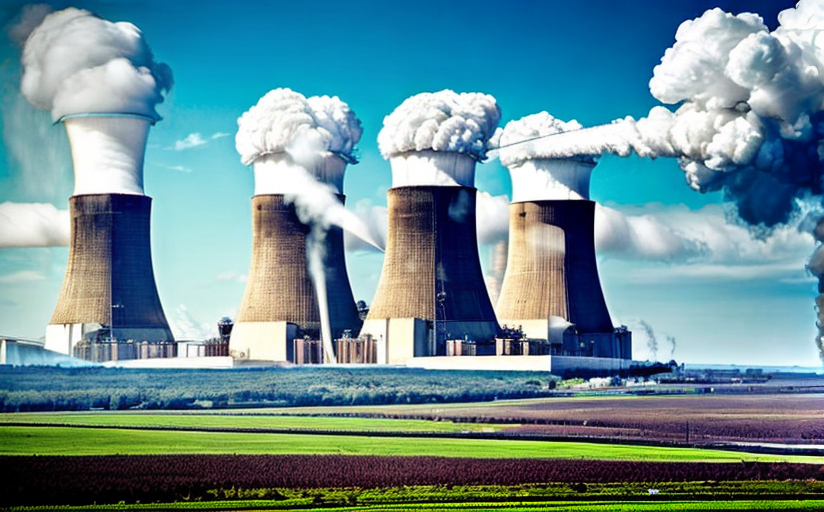Nuclear Energy and Climate Change Mitigation
Climate change, attributed largely to the excessive emission of greenhouse gases from burning fossil fuels, remains a global concern. Amid this context, nuclear energy emerges as a promising avenue in climate change mitigation. An in-depth understanding of nuclear energy, including the science, benefits, drawbacks, and its prospects, is therefore critical.
The Science behind Nuclear Energy
Nuclear energy, derived from the core of an atom, is harnessed through two fundamental processes: fission and fusion. Fission involves splitting an atom's nucleus, which releases energy. It is used in nuclear power plants and generates significant amounts of electricity. In contrast, fusion combines atomic nuclei. This process happens at the sun's core and generates immense energy, although scientist are still grappling with how to harness it efficiently.
Nuclear energy production bears the burden of radioactive waste, a by-product of fission. Radioactive waste is hazardous and needs careful management and storage for thousands of years, posing a significant challenge to nuclear power.
Nuclear Energy vs Other Power Sources
Nuclear energy stands tall when compared to other energy sources regarding efficiency and sustainability. Nuclear power plants are capable of generating large amounts of electricity from small amounts of uranium, the primary fuel used, making it highly efficient. Unlike fossil fuels, which contribute to climate change, nuclear power emits negligible greenhouse gases.
However, despite these benefits, the sustainability of nuclear energy is a contentious issue primarily due to the long-lived radioactive waste and potential for catastrophic accidents, such as Fukushima and Chernobyl.
Breathing Life Back to Nuclear Energy
Despite the lingering concerns over waste management and safety, nuclear energy remains a pillar in reducing greenhouse gas emissions. Consequently, substantial research is being undertaken to make nuclear power safer and more effective.
These innovations include developing advanced reactors that can reduce waste and decrease the risk of accidents. Furthermore, studies are investigating fusion as a sustainable, clean, and virtually limitless energy source, although this remains a long-term prospect.
Nuclear Energy: A Global Perspective
The growth and acceptance of nuclear energy vary across the globe. Certain countries like France and China have embraced nuclear power to meet their energy demands, while Germany moves towards closing its nuclear power reactors by 2022 to favor renewable energy sources.
Future of Nuclear Energy
Whether expanding nuclear energy can combat climate change successfully is debatable. On one hand, nuclear energy offers a feasible year-round, high-density energy source with nearly zero carbon emissions. On the other hand, concerns over safety, disposal of radioactive waste, and high capital costs impede its large-scale deployment.
Expert Opinions and Recent Studies
Recent studies and expert views align on nuclear power's promise to mitigate climate change. A study by Massachusetts Institute of Technology advocates for nuclear energy's expansion to achieve low-carbon energy trajectories. Furthermore, the Intergovernmental Panel on Climate Change identifies nuclear power as a key element of the necessary energy transition.
In conclusion, while nuclear energy bears considerable potential in climate change mitigation, its future will largely hinge upon technological innovation, safety improvements, and wide-scale acceptance.
















Comments
Leave a Comment